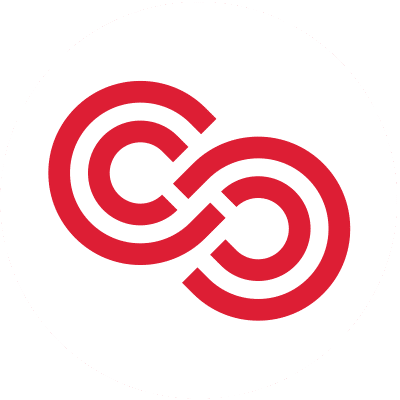预约演示
更新于:2025-05-07
Ectopic ACTH Syndrome
异位ACTH综合征
更新于:2025-05-07
基本信息
别名 ACTH Syndrome, Ectopic、ACTH Syndromes, Ectopic、ACTH syndrome; ectopia + [40] |
简介 Symptom complex due to ACTH production by non-pituitary neoplasms. |
关联
3
项与 异位ACTH综合征 相关的药物靶点 |
作用机制 11β-HSD1抑制剂 |
非在研适应症 |
最高研发阶段临床2期 |
首次获批国家/地区- |
首次获批日期1800-01-20 |
作用机制 ACTH receptor拮抗剂 |
非在研适应症- |
最高研发阶段临床2期 |
首次获批国家/地区- |
首次获批日期1800-01-20 |
8
项与 异位ACTH综合征 相关的临床试验NCT05804669
A Phase 1b/2a Open-label Multiple-ascending Dose Exploratory Study of CRN04894 in ACTH-dependent Cushing's Syndrome (Cushing's Disease or Ectopic ACTH Syndrome)
A Phase 1b/2a, first-in-disease, open-label, multiple-ascending dose exploratory study to evaluate safety, tolerability, pharmacokinetics (PK), and pharmacodynamic biomarker responses associated with CRN04894 (an adrenocorticotropic hormone [ACTH] receptor antagonist) in participants with ACTH-dependent Cushing's syndrome (Cushing's disease or Ectopic ACTH Syndrome [EAS])
开始日期2023-10-12 |
NCT05307328
SPI-62 As a Treatment for Adrenocorticotropic Hormone-dependent Cushing's Syndrome
This is a randomized, placebo-controlled, study of SPI-62 in subjects with ACTH-dependent Cushing's syndrome caused by a non-adrenal tumor. Subjects will receive each of the following 2 treatments for 24 weeks: SPI-62 and matching placebo with the option of long-term extension.
开始日期2022-09-01 |
NCT02780882
A Proof of Concept and Open-label Study to Test the Efficacy and Safety of Pasireotide in Patients With Ectopic ACTH-producing Tumors
The purpose of this prospective open-label phase II study, is to evaluate the efficacy of pasireotide twice daily subcutaneous injections for normalizing 24 hour urine free cortisol in patients with ectopic ACTH-producing tumors as measured by the proportion of patients achieving normal UFC at the end of the study period.
开始日期2015-12-01 |
申办/合作机构 |
100 项与 异位ACTH综合征 相关的临床结果
登录后查看更多信息
100 项与 异位ACTH综合征 相关的转化医学
登录后查看更多信息
0 项与 异位ACTH综合征 相关的专利(医药)
登录后查看更多信息
1,498
项与 异位ACTH综合征 相关的文献(医药)2025-08-01·Cellular Signalling
EIF2B5 promotes malignant progression of hepatocellular carcinoma by activating the PI3K/AKT signaling pathway through targeting RPL6
Article
作者: Huang, Yue ; Gao, Xiaotao ; Tu, Linglan ; Cheng, Liyan ; Zhu, Jiayao ; Ding, Chenguang ; Wang, Yan ; Qian, Qiyi ; Hu, Jiahui ; Nie, Huizong ; Zheng, Xiaoliang ; Huang, Dongsheng ; Xi, Yiling
2025-04-18·JCEM Case Reports
Primary Renal Neuroendocrine Tumor Presenting as Ectopic ACTH Syndrome
Article
作者: Furqan, Saira ; Ather, Hammad ; Chhachhar, Abrar Ali ; Memon, Aisha ; Islam, Najmul
2025-04-01·Annales d'Endocrinologie
Desmopressin is a safe and effective secretagogue to replace corticotropin-releasing hormone in petrosal sinus sampling
Article
作者: Dufour, Henry ; Brue, Thierry ; Castinetti, Frederic ; Graillon, Thomas ; Piazzola, Cecilia ; Girard, Nadine
2
项与 异位ACTH综合征 相关的新闻(医药)2025-03-20
点击“蓝字”关注我们
编者按:3月14~16日,2025华东内分泌代谢病学术年会在江西南昌盛大召开。本次会议集结国内多位领域知名专家,多角度、全方位展示了我国内分泌代谢病基础研究和临床治疗方面的新观点、新技术、新成果,为参会者精心打造了一场内容丰富、水平超群的学术嘉年华。安徽医科大学第一附属医院内分泌科章秋教授结合本科室诊断治疗的一例临床病例,围绕周期性库欣综合征这一极具挑战性的罕见疾病展开了精彩报告,本刊特此报道。
一
CCS:复杂且独特的罕见病
周期性库欣综合征( cyclical cushing syndrome,CCS)是库欣综合征(CS)中的特殊类型,其皮质醇分泌呈现周期性波动,其周期长短不一,临床表现也可出现反复发作与自发缓解相交替的现象,给临床诊断带来一定困难,极易造成漏诊或误诊,延误治疗。
01
病因复杂多样
所有引起皮质醇增多症的病因,包括促肾上腺皮质激素(ACTH)依赖性(库欣病、异位ACTH综合征)及ACTH非依赖性(肾上腺腺瘤、肾上腺癌、原发性色素结节性肾上腺结节病等)均可以表现为CCS。既往认为CCS是一种罕见疾病,但现有研究表明此观点可能是临床医师对于该病认识不足造成的误解。
02
生化指标周期性波动
CCS的独特之处在于皮质醇分泌的周期性变化。患者会经历高皮质醇期和低皮质醇期交替出现的过程。
在高皮质醇期,患者会表现出典型的库欣综合征症状,如体重迅速增加、高血压加重、精神症状(如焦虑、抑郁、失眠等)、糖代谢异常明显加重等。
而在低皮质醇期,患者可能会出现类似肾上腺皮质功能减退的症状,如疲劳、乏力、食欲减退、低血糖、低血压等。不同患者之间的周期差异较大,由12小时至数月不等,且在波谷期其皮质醇水平并非一定恢复正常,也可轻度升高,大部分CCS患者每个周期的循环具有一定的规律,也有某些患者具有比较复杂的循环模式。因此判断其周期性常需要长期持续随访。
二
CCS的早期筛查和诊断
由于该病临床表现的多样化及皮质醇高分泌状态存在反复发作,给临床诊断带来一定的困难,易造成漏诊或误诊,因此对于疑似患者确立CCS的诊断以及检测出皮质醇分泌的周期性至关重要。
01
早期筛查
建议对以下患者进行CS的筛查:
①存在与年龄不相符的临床表现(如年轻患者存在高血压、糖尿病、骨质疏松或儿童体质量进行性增加但生长发育停滞等);
②存在CS的临床表现且进行性加重,特别是向心性肥胖、紫纹、多血质、皮肤菲薄等典型表现者;
③肾上腺意外瘤患者。
目前常用的初步筛查方法包括:24小时尿游离皮质醇(24h-UFC)、午夜唾液皮质醇(NSC)、血清皮质醇昼夜节律、过夜1mg地塞米松抑制试验及小剂量地塞米松抑制试验等。对于检查结果阴性但临床高度怀疑为CS者(存在CS典型表现、肾上腺意外瘤等)需警惕CCS的存在。
02
CCS的诊断
CCS目前尚无统一的诊断标准,一般认为CCS的诊断应符合以下3点:
①至少1次发作时能达到CS的诊断标准;
②实验室检查明确皮质醇水平呈周期性波动,且至少观察到3个波峰和2个波谷(波峰时皮质醇水平应超过正常值高限);
③排除其他病因(如假性CS、医源性CS等)。
03
鉴别诊断
由于该病的特殊性,在缓解期使用地塞米松抑制试验筛查可能会得到与临床相矛盾的结果,因此指南建议使用24h-UFC及NSC作为筛查手段。近年来也有许多学者尝试使用一些新的方法来协助诊断。如测定唾液皮质醇浓度、清晨尿皮质醇/肌酐24h-UFC、头发节段皮质醇检测及去氨加压素(DDAVP)兴奋试验等。波动性的临床表现以及临床表现与检查结果存在矛盾的情况并非仅见于CCS,通常还需要和以下常见情况进行鉴别:亚临床库欣综合征、假性库欣状态、糖皮质激素抵抗综合征。
三
CCS面临筛查手段的挑战
CCS作为CS的一种少见类型,因其临床表现复杂多变,皮质醇高分泌呈现无法预估的发作与缓解交替,常规生化筛查手段往往得到与临床表现相矛盾的结果,导致其诊断困难。现有的筛查方法不论是指南推荐的UFC、NSC还是新出现的清晨尿皮质醇/肌酐、头发节段皮质醇检测等均存在一定的缺陷,目前尚无100%筛查出CCS的方法,且由于现有报道病例数较少,各种筛查方法均需要更多病例来进一步研究。对于筛查试验后疑似为CCS的患者,应进一步进行影像学检查证实存在垂体、肾上腺或异位的病灶,同时应注意与SCS、假性库欣状态等情况相鉴别。对于临床高度怀疑CS而初筛试验正常者,往往需要长期随访及多次重复筛查试验以寻找周期性皮质醇分泌的证据。
四
小结
综上而言,CCS是一类具有挑战性的内分泌疾病,准确的诊断需要综合考量临床症状、实验室检查和影像学检查结果。随着医疗技术的不断发展,早期诊断和个体化的治疗方案将有助于提高患者的生存质量和预后。
参考文献:
1.Peri A,Bemporad D,Parenti G,et al. Cushinh’s syndrome due tu intermittent ectopic ACTH production showing a temporary remission during a pulmonary infection.Eur J Endocrinol.2001,145(5):605-611.
2.白婕妤, 王越, 张素华, 等. 周期性库欣综合征的诊断进展.《临床荟萃》,.2015 ,30(6) :704-706.
3.郑芬萍, 李红. 库欣综合征诊治的难度和要点. 现代实用医学, 2016, 28(9):1121-1138.
4.陈存仁, 林璐, 魏海平, 等. 周期性库欣综合征一例, 临床内科杂志, 2020, 37(3):169-170.
声明:本文仅供医疗卫生专业人士了解最新医药资讯参考使用,不代表本平台观点。该等信息不能以任何方式取代专业的医疗指导,也不应被视为诊疗建议,如果该信息被用于资讯以外的目的,本站及作者不承担相关责任。
最新《国际糖尿病》读者专属微信交流群建好了,快快加入吧!扫描左边《国际糖尿病》小助手二维码(微信号:guojitnb),回复“国际糖尿病读者”,ta会尽快拉您入群滴!
(来源:《国际糖尿病》编辑部)
版权声明
版权属《国际糖尿病》所有。欢迎个人转发分享。其他任何媒体、网站未经授权,禁止转载。
2023-11-04
·药时代
收集周期:10.30-11.3,国内部分为首次申请上市和首次申请临床的创新药 国内NDA汇总1、礼来:Donanemab注射液作用机制:β-淀粉样蛋白(Aβ)抗体适应症:阿尔兹海默10月31日,礼来的Donanemab注射液的上市许可申请(NDA)获CDE受理。Donanemab是礼来开发的靶向被称为N3pG的修饰化Aβ的抗体药物,已被美国FDA授予治疗阿尔兹海默(AD)的突破性疗法认定以及优先审评资格。2023年1月,CDE 官网显示将donanemab注射液纳入突破性治疗品种,拟用于治疗早期症状性阿尔茨海默病,包括阿尔茨海默病所致的轻度认知障碍以及轻度阿尔茨海默病。III期试验显示,相比渤健的aducanumab,donanemab清除Aβ 蛋白的速度更快。在用药6 个月,达到Aβ 蛋白清除(<24.1
centiloids)的患者在donanemab 组为37.9%,而在aducanumab组为1.6% (p≤0.001)。说明donanemab 在Aβ
蛋白清除候选药物中有一定的优势。在2023年第二季度,礼来再次提交了Donanemab的新药上市申请(BLA),用于治疗阿尔茨海默病。2、Recordation:磷酸奥西卓司他薄膜衣片作用机制:ALDOS抑制剂;CYP11B1抑制剂适应症:库欣综合征10月31日,Recordation的磷酸奥西卓司他薄膜衣片的NDA获CDE受理。奥西卓司他(Osilodrostat)是一种新型口服皮质醇合成抑制剂,于2020年获得欧洲药品管理局(EMA)批准用于治疗成人库欣综合征。库欣综合征(CS)又称皮质醇增多症或柯兴综合征,是由各种病因导致的高皮质醇血症,作用于全身靶器官而引起一组临床综合征。按病因可分为依赖促肾上腺皮质激素(ACTH)的CS(包括库欣病和异位ACTH综合征)、不依赖ACTH 的CS(包括肾上腺皮质腺瘤、肾上腺皮质癌和不依赖ACTH 的双侧肾上腺结节样增生),所有病因中以库欣病最为常见,即垂体分泌ACTH的肿瘤,约占CS 的70%,肾上腺皮质腺瘤占CS 的15%~20%。2022年12月,国外的《垂体》杂志上报道了一名患有垂体促肾上腺皮质激素(ACTH)分泌性腺瘤的35岁女性,在经鼻蝶窦手术(TNS)后由于腺瘤有少量残留库欣综合征相关的生化指标控制不佳,使用奥西卓司他治疗后取得了快速有效的生化和临床反应。3、UCB:罗泽利昔珠单抗注射液作用机制:anti-FcRn 单抗适应症:重症肌无力10月31日,UCB的罗泽利昔珠单抗注射液的NDA获CDE受理。罗泽利昔珠单抗(Rozanolixizumab)通过阻断FcRn 和免疫球蛋白 G (IgG) 的相互作用,加速抗体的分解代谢,从而降低总体IgG和病理性自身抗体水平。目前,该药物正开发治疗多种由致病性IgG自身抗体驱动的自身免疫性疾病,原发性免疫性血小板减少症、自身免疫性脑炎等。2023年6月,皮下注射Rozanolixizumab获美国FDA批准上市,用于治疗抗乙酰胆碱受体(AChR)或抗肌肉特异性酪氨酸激酶(MuSK)抗体阳性成人gMG。上述获批主要基于关键临床3期试验(MycarinG)结果,患者被等比例随机分为三组,接受药物治疗7 mg/kg或10 mg/kg或安慰剂,按每周一次皮下注射,治疗期为6周,随访观察期为8周。主要终点指标为MG日常生活活动(MG-ADL)评分,结果显示:(1)在治疗后的第43天,高、低剂量组均显现MG-ADL的大幅改善,相比基线变化值为–3.40与-3.37,安慰剂组为-0.78,且药物治疗组显著优于安慰剂组。(2)对MuSK抗体阳性gMG患者的亚组分析显示,高剂量组改善幅度为–4.16,低剂量组为-7.28,安慰剂组为2.28。相比接受治疗患者整体,MuSK抗体阳性gMG患者获得更佳的病情控制,并在第43天均显示MG-ADL明显改善。(3)7
mg/kg剂量组的安全性表现与安慰剂组相同,10 mg/kg剂量组患者感染、引发治疗中断TEAEs的发生率有所高于安慰剂组,意味着安全性上的剂量依赖效应。 国内IND汇总1、柏全生物:BT02单克隆抗体注射液作用机制:抗ITPRIPL1单抗适应症:实体瘤10月30日,柏全生物的BT02单克隆抗体注射液的临床申请(IND)获CDE受理。BT02针对多种难治的晚期实体瘤展现出突出的临床前药效,此次临床试验的顺利获批标志着公司管线的开发取得里程碑式进展。2、朗来科技:MY004567片作用机制:IRAK4抑制剂适应症:自身免疫性疾病11月1日,朗来科技的MY004567片的IND获CDE受理。MY004567(MY004)是由朗来科技子公司美悦生物自主研发的IRAK4抑制剂,MY004 是基于公司精准、高效的小分子药物发现平台LLIPDS开发,临床前研究表明,MY004分子与同靶点临床在研药物相比,药代行为更好、药效更优。3、拜耳:盐酸BAY3283142片作用机制:sGC激活剂适应症:慢性肾病11月3日,拜耳的盐酸BAY3283142片的IND获CDE受理。BAY3283142是拜耳公司开发的口服鸟苷酸环化酶 (sGC) 激活剂,正在开发用于治疗慢性肾病(CKD)。该药物具有“改善的药代动力学/药效学特征”的额外好处,是继2023年4月宣布停止开发同靶点runcaciguat 药物后的“后续”疗法。4、远大医药:ARC01注射液作用机制:治疗性mRNA疫苗适应症:肿瘤11月3日,远大医药的ARC01注射液的IND获CDE受理。ARC01是一款mRNA治疗性肿瘤疫苗,通过脂质体纳米颗粒(LNP)递送技术,将编码HPV-16中E6和E7抗原的mRNA转染自体细胞并翻译出相应的抗原,在TriMix®免疫佐剂共同作用下刺激机体产生特异性的体液免疫和细胞免疫,最终达到抗肿瘤的效果。其中,LNP递送技术与TriMix®佐剂技术为独家专利技术,能显著增强机体的免疫应答反应,从而提高疫苗的免疫治疗效果。公司拟开展一项开放标签、剂量递增的I期临床研究,拟入组不超过42例受试者,旨在评价ARC01在治疗患有HPV-16阳性的晚期不可切除或复发/转移性实体瘤的中国受试者中的安全性、耐受性、免疫原性、药代动力学特征及有效性。5、百吉生物:BST02注射液作用机制:TIL疗法适应症:肝癌11月3日,百吉生物的BST02注射液的IND获CDE受理。BST02是是一款从患者自身肿瘤浸润淋巴细胞中扩增所得到的T细胞治疗产品,用于治疗肝癌(包括肝细胞癌和胆管癌),属于过继性免疫细胞治疗(TIL)技术。TIL疗法是指从肿瘤组织中分离自然浸润淋巴细胞,通过体外扩增和功能优化后,重新回输到患者体内。由于TIL具有多种TCR克隆性、选择性肿瘤归巢能力和较低的非肿瘤靶向毒性,TIL疗法在实体瘤的细胞免疫疗法领域具有极大的优势。2023年10月,BST02的I/II期临床试验申请获得美国FDA批准,用于治疗所有类型的肝癌。6、华夏英泰:YTS104细胞注射液作用机制:自体细胞治疗适应症:白血病11月3日,华夏英泰的YTS104细胞注射液的IND获CDE受理。YTS104细胞注射液是基于华夏英泰开发的创新STAR-T平台的自体型细胞治疗药物,主要目标适应症是复发/难治急性髓系白血病(R/R AML)。该产品是采用慢病毒基因转导方式,将特定STAR基因导入自体T细胞内,经体外细胞扩增制备、功能和质量控制检测而获得的细胞治疗药物。产品优势为采用两个自主筛选的不同表位的纳米抗体,分别连接在STAR结构的α链及β链上,预期具有更好的抗原识别和杀伤作用。2022年12月,该药物被FDA授予孤儿药资格认定,用于治疗复发/难治急性髓系白血病(R/R AML)。全球III期临床汇总Atrasentan:是一种强效高选择性内皮素A(ETA)受体拮抗剂,是诺华以高达35亿美元的价格收购Chinook获得,用于治疗 IgA 肾病 (IgAN) 患者。近日,诺华宣布atrasentan的关键 III 期 ALIGN 研究的中期分析结果积极。36 周中期分析显示,研究达到了主要疗效终点,即与安慰剂相比,IgAN患者中的蛋白尿具有统计学意义的显著减少;此外,安全性与先前报告的 II 期 AFFINITY 研究IgAN 队列的数据一致。根据中期蛋白尿终点分析的结果,诺华计划于 2024 年向FDA提交申请,以期atrasentan在美国加速批准。该研究将继续在136 周内通过估计的肾小球滤过率(eGFR)测量肾功能变化,顶线结果计划将于 2026 年第一季度公布。封面图来源:123rf“礼诺”大战,GLP-1的下一步都写在财报里了……不断强调新药“零时差”惠及中国患者,这家跨国大药企释放出哪些信号?IgA肾病明星药澳门获批,这家中国biotech进入黄金收获期君实PD-1通过FDA生产现场核查背后:翻译文件超千万字,5次模拟考,2次正式核查,以及持续建设的国际化体系……DRUGTIMES点击在看 共济新药研发浪潮
优先审批临床3期突破性疗法申请上市上市批准
分析
对领域进行一次全面的分析。
登录
或

生物医药百科问答
全新生物医药AI Agent 覆盖科研全链路,让突破性发现快人一步
立即开始免费试用!
智慧芽新药情报库是智慧芽专为生命科学人士构建的基于AI的创新药情报平台,助您全方位提升您的研发与决策效率。
立即开始数据试用!
智慧芽新药库数据也通过智慧芽数据服务平台,以API或者数据包形式对外开放,助您更加充分利用智慧芽新药情报信息。
生物序列数据库
生物药研发创新
免费使用
化学结构数据库
小分子化药研发创新
免费使用


